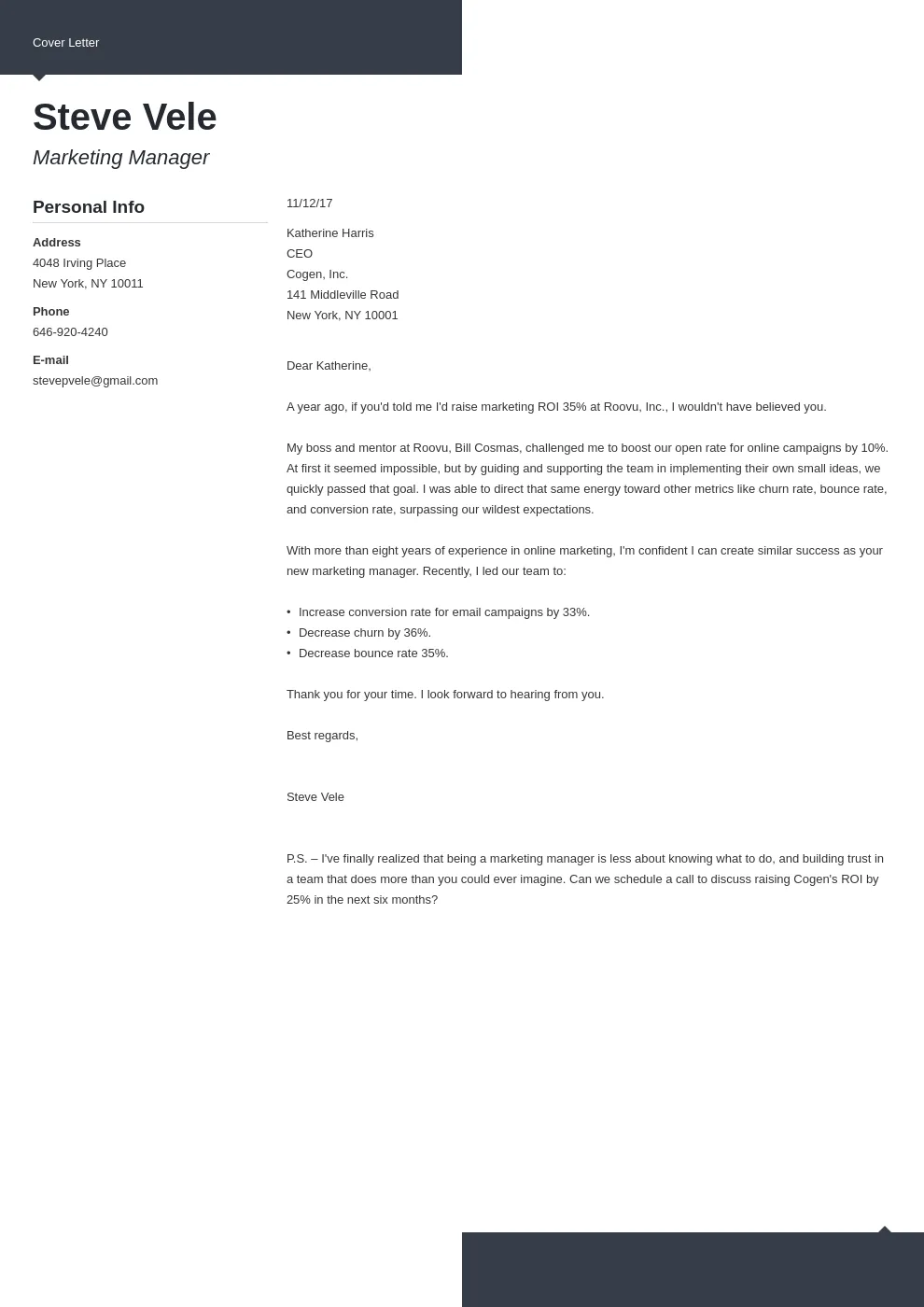Why Your Cover Letter Closing Matters
The closing of your cover letter is more than just a formality; it’s a crucial opportunity to leave a lasting impression. It’s the final message you deliver to the hiring manager, and it can significantly influence their perception of your candidacy. A well-crafted closing can reinforce your interest, reiterate your key qualifications, and prompt the reader to take the next step. Conversely, a weak or generic closing can undermine the impact of the entire letter, potentially leading to your application being overlooked. Think of it as the final handshake in a job interview – it should be firm, confident, and memorable. The closing is your last chance to convince the hiring manager why you are the perfect fit for the role.
The Importance of a Strong Closing
A strong closing acts as a summary of your strengths and reiterates your enthusiasm for the position. It should leave the reader with a clear understanding of what you can bring to the company. This section offers a chance to recap your key qualifications and skills, linking them directly to the job requirements. By doing so, you remind the hiring manager why you are a top contender for the role. Furthermore, a powerful closing demonstrates your proactive attitude and genuine interest, setting you apart from other applicants. Remember, the closing paragraph is your chance to make a final, compelling argument for why you deserve an interview.
Highlighting Your Key Strengths
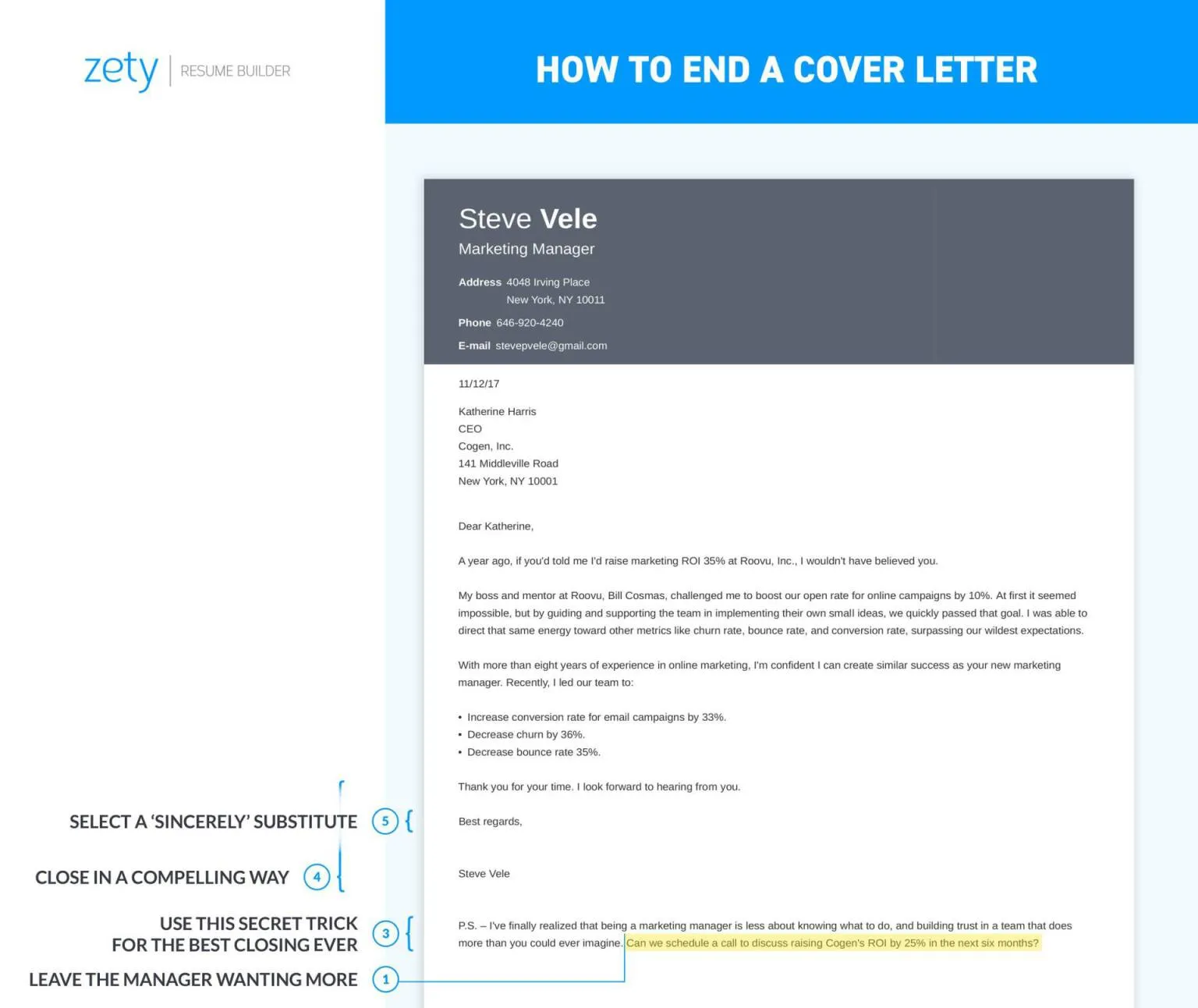
In the closing, you can briefly highlight your most relevant skills and experiences. Don’t just repeat what’s already in your resume; instead, focus on the aspects that directly align with the job requirements and company culture. Consider what makes you stand out from other candidates. Do you have a unique skill, a significant achievement, or a particular experience that aligns with the job description? Briefly mention it in your closing. By mentioning these key strengths, you reinforce the value you bring to the table. This could be as simple as mentioning a specific project, a successful outcome, or a skill that the company values. The goal is to provide a final, memorable reason why you’re the right fit.
Summarizing Your Qualifications
The closing is an ideal place to succinctly summarize your qualifications. Select two or three key accomplishments or skills that are most relevant to the job and briefly restate them. This serves as a final reminder of why you’re a strong candidate, without being repetitive. Tailor this summary to the specific requirements of the job. Review the job description, identify the most critical skills, and reiterate how your experience and qualifications align with those needs. This proactive approach demonstrates your understanding of the role and how you can contribute to the company’s success. Remember, the summary should reinforce your key selling points and leave the reader with a clear picture of your value proposition.
Expressing Enthusiasm for the Role
A genuine expression of enthusiasm can significantly improve your chances of getting an interview. Explicitly state your excitement about the opportunity and the company. Show the hiring manager that you’re not just looking for any job, but specifically this one. Reference something specific that you find appealing about the role or the company. This could be a particular project, the company’s mission, or its culture. This personalized touch demonstrates that you’ve researched the company and are genuinely interested in being a part of their team. Expressing enthusiasm helps you stand out and shows you’re not just going through the motions; you’re genuinely motivated to contribute.
Demonstrating Your Understanding of the Company
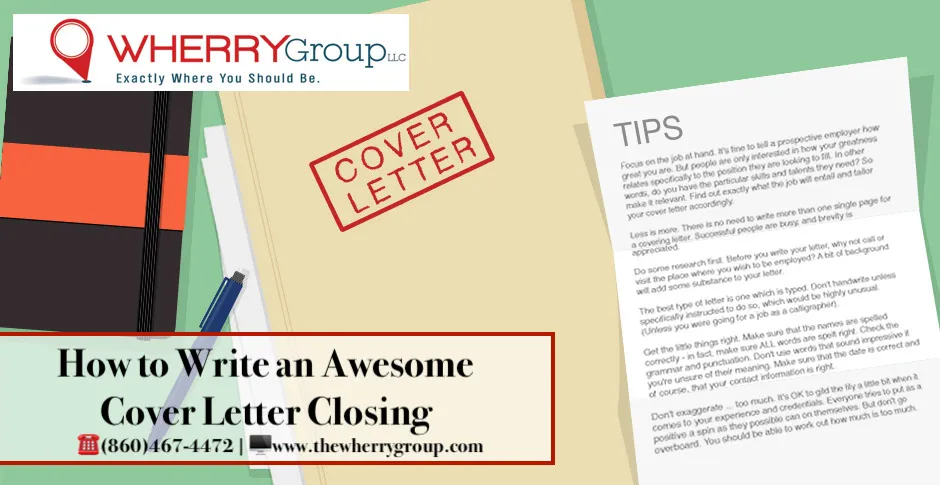
Showcasing your understanding of the company demonstrates that you’ve done your homework and that you’re genuinely interested in joining their team. Briefly mention something you admire about the company, their mission, or their recent achievements. This could include a specific product, a recent campaign, or their commitment to a particular cause. This level of detail shows you’re not just sending out a generic application. It shows you are engaged and have taken the time to learn about them. This small step can significantly increase your chances of getting noticed, as it highlights your genuine interest and your potential to contribute to their success.
Tailoring Your Closing to the Job
Avoid using a generic closing statement. Always tailor your closing to the specific job you are applying for. This means carefully reviewing the job description and aligning your closing with the key requirements and the company’s values. Referencing the specific job title or the company name in your closing shows that you’ve taken the time to personalize your application. Tailoring your closing also allows you to emphasize the skills and experiences that are most relevant to the role. A personalized closing statement that reflects your understanding of the job is far more effective than a generic one. It helps you make a stronger connection with the hiring manager.
Analyzing the Job Description
Carefully analyzing the job description is crucial for crafting an effective closing. Identify the key skills, experiences, and qualifications that the employer is looking for. These are the areas you should emphasize in your closing. Look for keywords and phrases used in the job description and incorporate them naturally into your closing statement. This demonstrates that you understand the role and are a good fit. By aligning your closing with the specific requirements listed in the job description, you significantly increase your chances of making a positive impression and securing an interview. Pay attention to the company’s values and culture, and reflect those in your closing.
Aligning Your Skills with Requirements
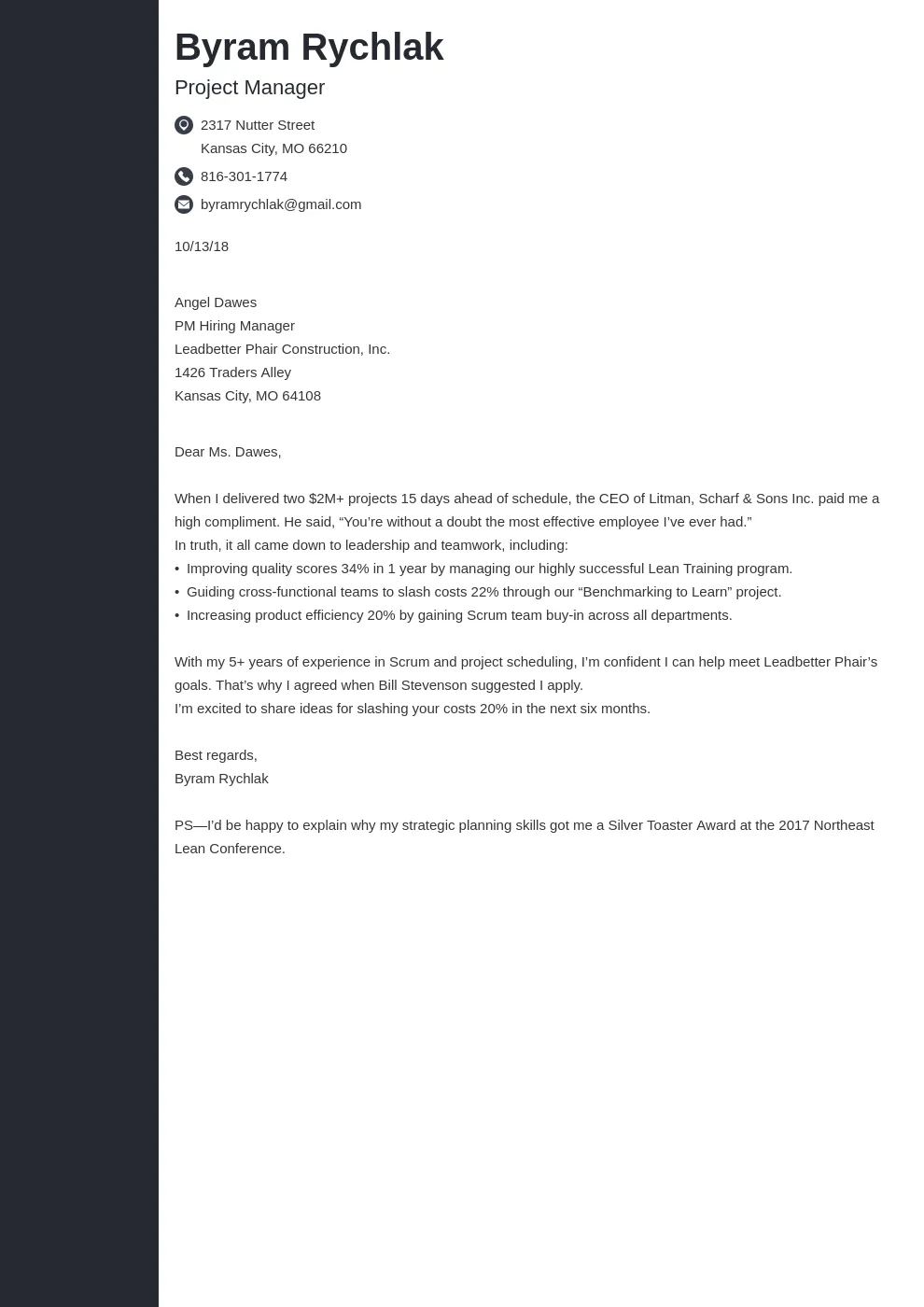
Make sure your closing clearly aligns your skills and experiences with the requirements outlined in the job description. Briefly restate the key skills and accomplishments that make you a strong candidate. Provide specific examples of how you’ve used these skills to achieve success in the past. This demonstrates that you can deliver the results the employer is seeking. Focus on the areas where you excel and provide concrete evidence of your abilities. When aligning your skills with the job requirements, you create a compelling argument for why you’re the perfect candidate. Make it easy for the hiring manager to see how your skills translate into value for their organization.
The Power of a Compelling Call to Action
A strong call to action is essential in your cover letter closing. It directs the hiring manager on the next step you want them to take. The most common call to action is a request for an interview, but the phrasing matters. Be direct, confident, and professional. For instance, you could say, “I am eager to discuss my qualifications in more detail. Thank you for your time and consideration. I look forward to hearing from you soon.” This straightforward approach encourages the hiring manager to contact you. Make it clear what action you expect them to take, and provide a brief, polite invitation. Always make sure your call to action reflects your genuine interest in the role.
Requesting an Interview Effectively
When requesting an interview, be confident and specific. State your desire to further discuss your qualifications and how you can contribute to the company’s success. Use phrases like, “I am confident that my skills and experience align with the requirements of this position, and I am eager to discuss how I can contribute to [Company Name]’s success.” This type of direct request is often more effective than a passive statement. Make it easy for the hiring manager to envision you in the role. Offer to provide any additional information that may be needed. Remember, the goal is to demonstrate your genuine interest and to initiate the next step in the hiring process.
Making It Easy for the Employer to Respond
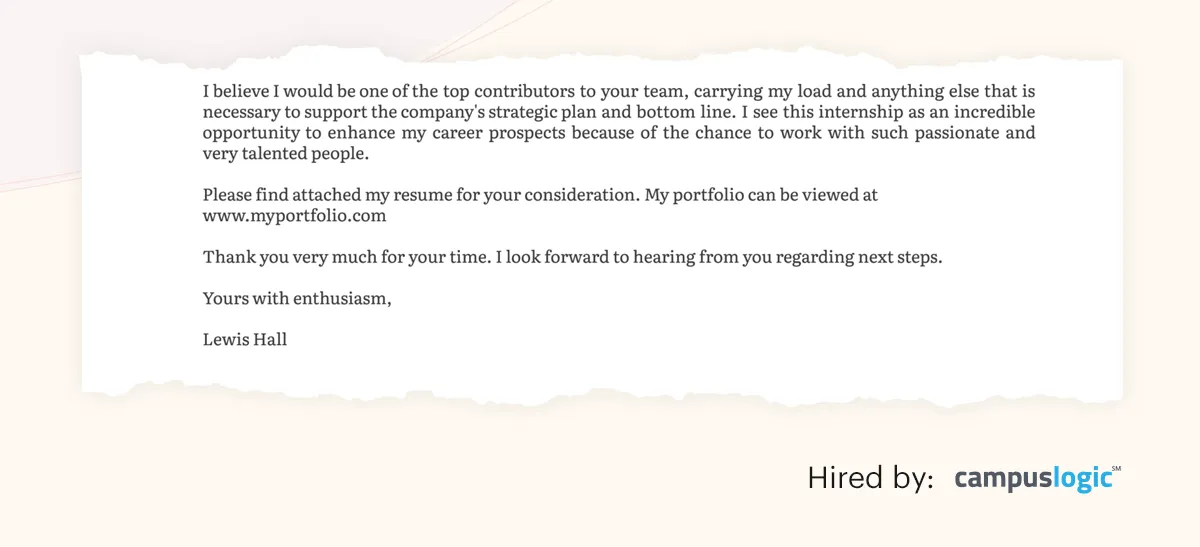
Include your contact information in a clear and accessible format within your cover letter closing. Providing your phone number and email address makes it easy for the hiring manager to reach out to you. Ensure your contact details are accurate and up-to-date. Consider adding a line that encourages the hiring manager to reach out. You might say, “Thank you for your time and consideration. I can be reached at [email address] or [phone number].” Making it easy for the employer to contact you increases your chances of receiving a response. Presenting this information clearly and accessibly conveys your professionalism and commitment to the application process.
Examples of Excellent Cover Letter Closings
Here are some examples of effective cover letter closings for different scenarios. For example, consider a closing that emphasizes specific skills: “I am eager to apply my [specific skill] to contribute to [Company Name]’s goals. Thank you for considering my application. I look forward to discussing my qualifications in an interview.” Another example for an enthusiastic candidate could be: “I am incredibly excited about the opportunity to join [Company Name] and contribute to [specific project or goal]. Thank you for your consideration. I am available for an interview at your earliest convenience.” Also, a results-oriented example could be: “My experience in [relevant area] has consistently delivered [quantifiable results]. I am eager to bring my proven success to [Company Name]. I look forward to hearing from you soon.”
Closing for Different Industries
Your cover letter closing should always align with the norms and expectations of the specific industry. In more formal industries, such as law or finance, it may be necessary to use more formal language and traditional closing phrases, like “Sincerely” or “Respectfully.” In creative industries, however, such as marketing or design, a more enthusiastic and personalized approach may be acceptable. Tailor your closing statement to reflect the culture of the target industry. If you’re unsure, research the industry’s norms or examine successful cover letters from professionals in that field. Always prioritize professionalism while aligning with industry-specific expectations. Understanding the industry standard helps you create a closing that is both appropriate and impactful.
Closing for Entry-Level Positions
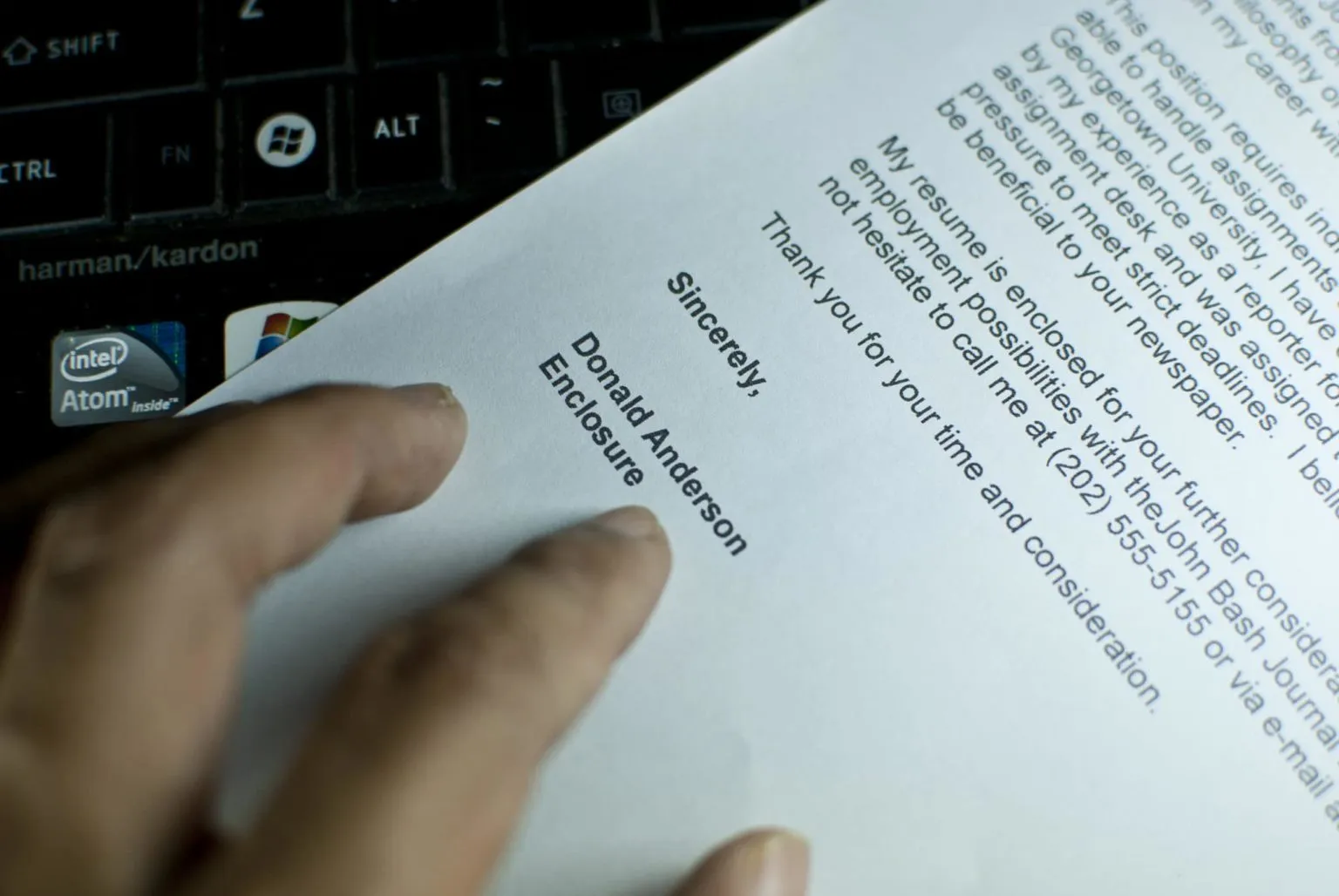
For entry-level positions, the cover letter closing should focus on your enthusiasm, eagerness to learn, and any transferable skills you possess. Even if you have limited professional experience, emphasize your potential and your willingness to contribute. Highlight any relevant coursework, projects, or volunteer experiences that align with the job requirements. You could also discuss your long-term career goals and how the role aligns with your aspirations. Express your excitement about the opportunity to learn and grow within the company. An enthusiastic closing shows your potential and your eagerness to build a career. It can be as simple as, “I am excited about this opportunity to begin my career and I am eager to contribute and learn.”
Closing for Experienced Professionals
For experienced professionals, the cover letter closing should reiterate your most significant achievements and their relevance to the role. Summarize your key qualifications and quantify your accomplishments whenever possible. Show how your experience and skills can bring immediate value to the company. Highlight any leadership experience or achievements that demonstrate your ability to drive results. Your closing should emphasize the specific ways you have contributed to the success of past employers. For example: “I am confident my [skill] and experience in [area] will allow me to deliver [quantifiable results]. I would welcome the opportunity to discuss this further.”
Common Mistakes to Avoid in Your Closing
Avoid common pitfalls that can weaken your cover letter closing. These mistakes can include generic phrases, passive language, and failing to proofread. Avoid using generic phrases such as “Thank you for your time” or “I look forward to hearing from you.” These phrases are overused and don’t make your application memorable. Instead, personalize your closing to make it stand out. Steer clear of passive language that fails to convey enthusiasm. Instead of saying “I hope to hear from you,” try a more proactive statement like “I am eager to discuss my qualifications in an interview.” This demonstrates confidence. Finally, always proofread your closing carefully. Typos and grammatical errors can undermine your professionalism.
Using Generic Phrases
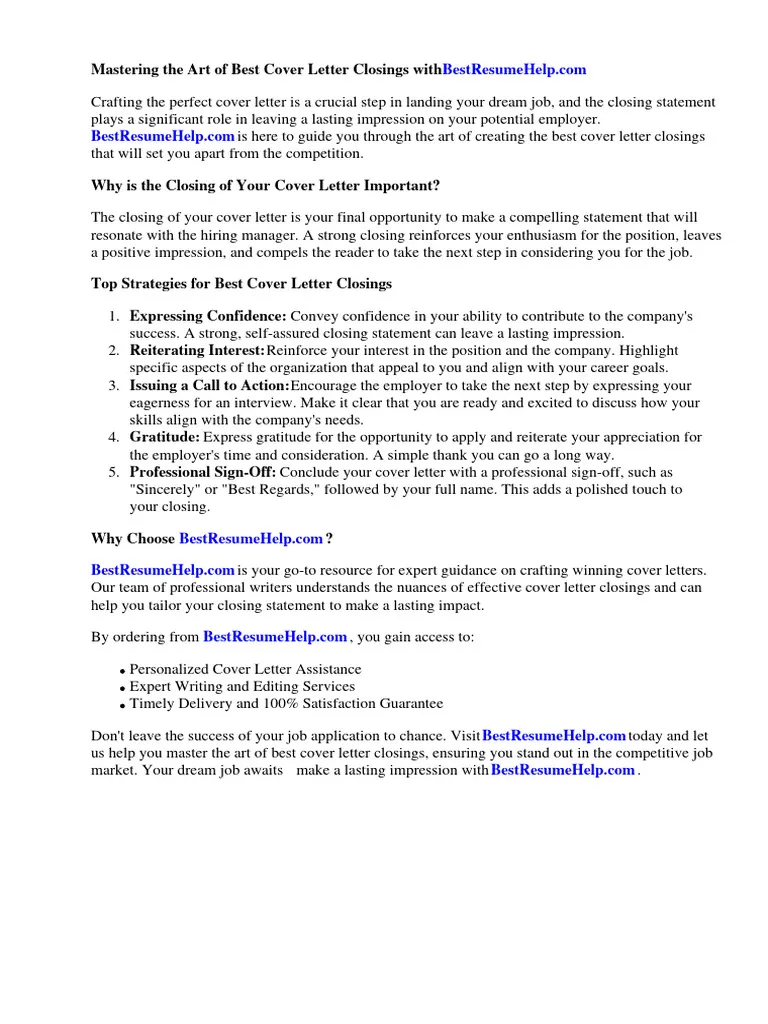
Avoid using generic or overused phrases that can make your closing appear insincere and uninspired. Phrases like “Thank you for your consideration” or “I look forward to hearing from you” are common but lack impact. These generic statements don’t provide a unique reason why the hiring manager should remember you or contact you. Instead, try personalizing your closing with specific details that show your genuine interest. Mention the company’s name, a project, or an achievement. These touches transform a standard closing into a more memorable message. Replace the generic with specific, and make it clear why you’re the best fit for the job.
Being Too Passive
Avoid passive language that doesn’t convey enthusiasm or confidence in your abilities. Passive phrases like “I would be grateful if you considered my application” can make you appear hesitant. Your closing should be direct and proactive. Demonstrate your interest and eagerness with phrases like “I am confident that my skills and experience will enable me to excel in this role.” This communicates your belief in your abilities. Use active verbs, show confidence, and create a sense of anticipation. By adopting a proactive tone, you project confidence and increase the chances of a positive response. Making it clear that you are excited and ready to contribute immediately is essential.
Failing to Proofread Your Closing
Always proofread your closing meticulously. Typos, grammatical errors, and formatting issues can damage your credibility and make you appear unprofessional. A well-crafted closing that is marred by errors will undermine your efforts. Take the time to review your closing several times, and use a grammar checker. It is also good to have someone else review it, as a fresh pair of eyes can often catch mistakes. Proofreading is a critical step in the job application process, and it showcases your attention to detail. Even small errors can significantly reduce your chances of getting hired. Always check for spelling, grammar, punctuation, and formatting errors to ensure your closing is polished and professional. An error-free closing reflects positively on you.
Proofreading Cover Letter Closing
Carefully proofread your cover letter closing to ensure it is free of errors. Check for spelling mistakes, grammatical errors, and punctuation issues. Read the closing aloud to catch any awkward phrasing or run-on sentences. Ensure your formatting is consistent and that your contact information is correct. Consider using online grammar and spelling checkers to identify potential errors. If possible, have a friend, family member, or career advisor review your closing for a second opinion. This extra step can help catch mistakes that you may have overlooked. Proofreading is crucial; it reflects your professionalism and shows that you care about your application. A flawless closing shows that you take pride in your work and demonstrate attention to detail.
Formatting and Design considerations
Consider formatting and design to enhance the impact of your cover letter closing. The closing should match the overall style of your cover letter, maintaining consistency in font, font size, and margins. Ensure your closing is easy to read. Avoid using overly complex fonts or excessive formatting. Keep the layout clean and professional. A well-designed closing is more likely to make a positive impression. Formatting can influence readability and visual appeal. Use clear, concise language and keep the closing brief and to the point. The closing should be the final impression the hiring manager receives. Proper formatting and design can make your message stand out and encourage the reader to take action.
